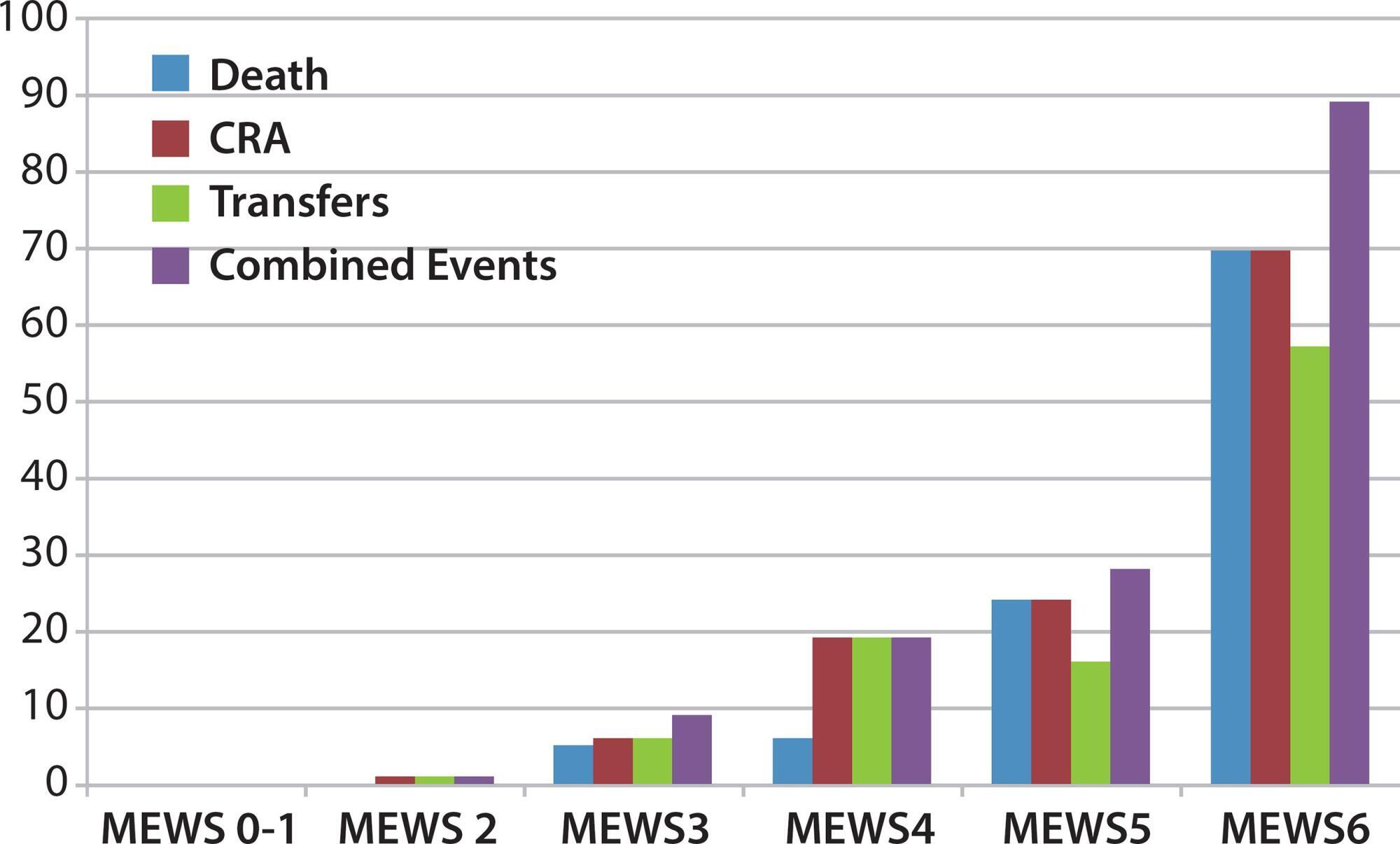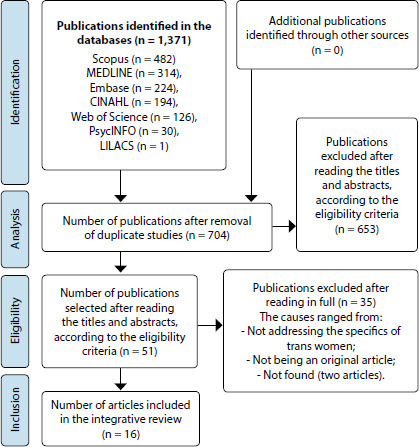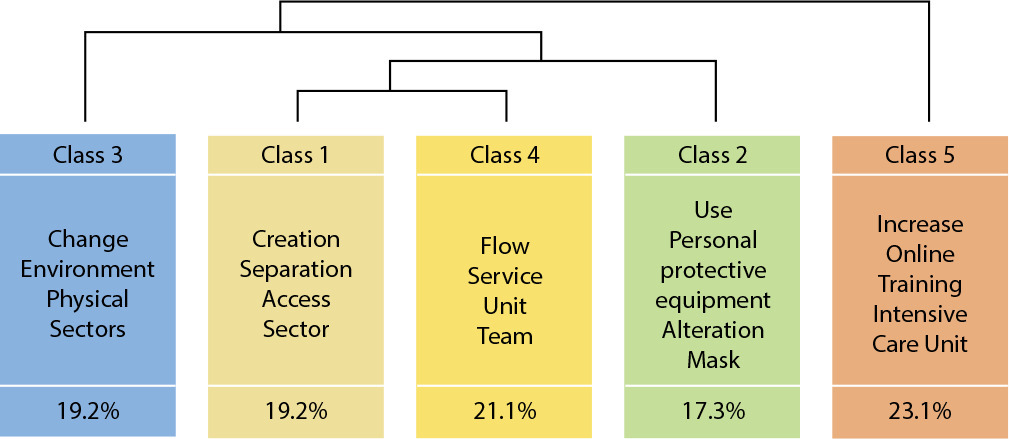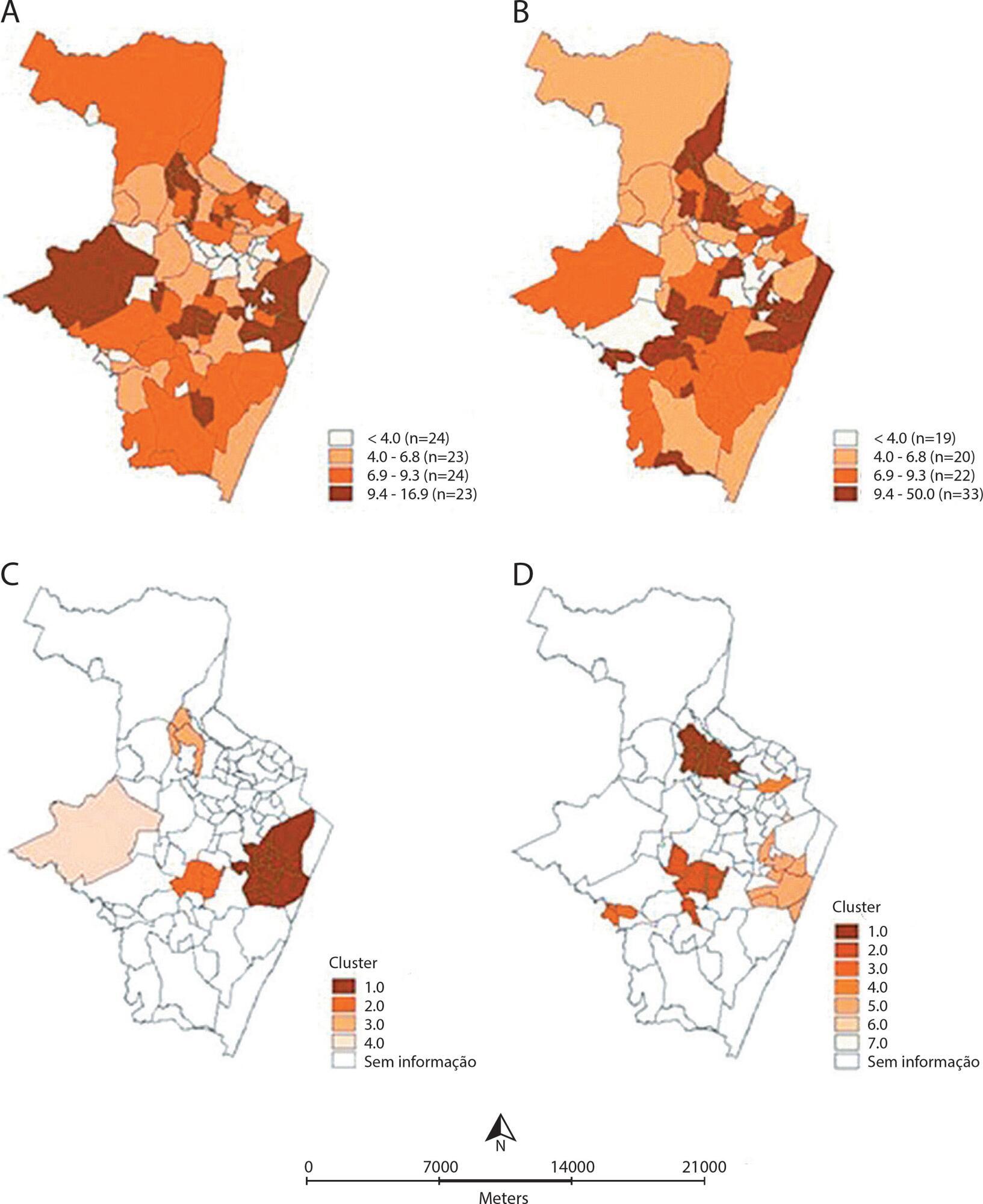-
RESEARCH01-01-2017
Nursing care by telehealth: what is the influence of distance on communication?
Revista Brasileira de Enfermagem. 2017;70(5):928-934
Abstract
RESEARCHNursing care by telehealth: what is the influence of distance on communication?
Revista Brasileira de Enfermagem. 2017;70(5):928-934
DOI 10.1590/0034-7167-2016-0142
Views0See moreABSTRACT
Objective:
Evaluate the perception of nurses regarding interpersonal communication while providing care via telehealth.
Method:
Qualitative research realized with seven nurses working in telehealth in Brazil, the sample was determined by data saturation. A questionnaire with open questions was applied and then content analysis of the dialogues was conducted, focusing on thematic analysis.
Results:
Four categories emerged from the dialogues: Understanding the importance of communication; the interpersonal relationship interfering with communication; Communicating via technology; and Learning the communication process.
Final considerations:
The perception of nurses working in telehealth in Brazil is that technology has facilitated their professional practice; however, in relation to the communication process, they believe it is harder to communicate by telehealth, mainly due to difficulty in perceiving nonverbal signals. To overcome these difficulties, they agreed that interpersonal communication is a skill that must be acquired during their professional training.
-
RESEARCH01-01-2017
Neoliberalist influences on nursing hospital work process and organization
Revista Brasileira de Enfermagem. 2017;70(5):912-919
Abstract
RESEARCHNeoliberalist influences on nursing hospital work process and organization
Revista Brasileira de Enfermagem. 2017;70(5):912-919
DOI 10.1590/0034-7167-2016-0092
Views0See moreABSTRACT
Objectives:
To describe and analyze the influence of the neoliberal economic and political model on the nursing hospital work process and organization.
Method:
Qualitative descriptive research, having as its scenery a university hospital. The subjects were 34 nursing workers. The data collection took place from March to July 2013, through semi-structured interview. The data treatment technique used was content analysis, which brought up the following category: working conditions precariousness and its consequences to the hospital work process and organization in the neoliberal context.
Results:
The consequences of neoliberalism on hospital work process and organization were highlighted, being observed physical structure, human resources and material inadequacies that harms the assistance quality. In addition to wage decrease that cause the need of second jobs and work overload.
Final considerations:
There is a significant influence of the neoliberal model on hospital work, resulting on working conditions precariousness.
-
RESEARCH01-01-2017
Nursing team’s conceptions about the families of hospitalized children
Revista Brasileira de Enfermagem. 2017;70(5):904-911
Abstract
RESEARCHNursing team’s conceptions about the families of hospitalized children
Revista Brasileira de Enfermagem. 2017;70(5):904-911
DOI 10.1590/0034-7167-2016-0233
Views0See moreABSTRACT
Objectives:
to describe nursing team care and discuss the nursing team’s conception of companion families of hospitalized children. The study was based on the theoretical framework of Collière’s theory of nursing care identity.
Method:
this was a qualitative study with 14 members of a nursing team, conducted through an unstructured group interview. Thematic data analysis was employed.
Results:
habitual and repair care was delegated to families, regardless of the child’s clinical condition.
Final considerations:
the team’s official discourse about the families of hospitalized children, as recommended by the literature, refers to the family’s alterity and participation in care provision, with sights on discharge and defending family participation as beneficial to children. In practice, however, the nursing staff makes concessions about the presence of chaperoning families and delegates care.
-
RESEARCH01-01-2017
Innovation in nursing health care practice: expansion of access in primary health care
Revista Brasileira de Enfermagem. 2017;70(5):898-903
Abstract
RESEARCHInnovation in nursing health care practice: expansion of access in primary health care
Revista Brasileira de Enfermagem. 2017;70(5):898-903
DOI 10.1590/0034-7167-2016-0131
Views0ABSTRACT
Objective:
analyze the reorganization of the health care practice of nurses as an innovative strategy for expansion of access in primary care.
Method:
qualitative and quantitative study, which interviewed 32 management and care nurses and collected documentary data from public reports of production of nursing consultations from 2010 to 2014, in a municipality in southern Brazil. Data processing for textual analysis was performed by IRAMUTEQ software; for simple descriptive statistical analysis, the program Excel 2013 was used.
Results:
in the innovative care practice class, associated with awareness of change, related to implementation of the FHS, its challenges and advantages, the following subclasses were identified: reorganization of schedules, nursing consultation, physical restructuring of BHUs, and shared consultation.
Final considerations:
the need to expand access to and valorization of care practice encourages the development of innovative strategies. The protagonism of care needs to be discussed in the various spaces so that each professional carry out the respective role with competence and efficacy.
Keywords:Access to Health ServicesHealth Care Practice ManagementNursingOrganizational InnovationPrimary Health CareSee more
-
EDITORIAL01-01-2017
The Nursing work and the construction of a democratic society
Revista Brasileira de Enfermagem. 2017;70(5):896-897
Abstract
EDITORIALThe Nursing work and the construction of a democratic society
Revista Brasileira de Enfermagem. 2017;70(5):896-897
DOI 10.1590/0034-7167.2017700501
Views0In Brazil, the Nursing work is performed by an expressive contingent of workers, which – according to the last survey by the Brazilian Nursing Association – comprised 1,856,683 professionals, mostly women, distributed into three professional categories: Nurses, Nursing Technicians and Nursing Assistants, who work in public and private health care networks. With salaries lower than […]See more -
EDITORIAL01-01-2017
O trabalho em Enfermagem e a construção de uma sociedade democrática
Revista Brasileira de Enfermagem. 2017;70(5):896-897
Abstract
EDITORIALO trabalho em Enfermagem e a construção de uma sociedade democrática
Revista Brasileira de Enfermagem. 2017;70(5):896-897
DOI 10.1590/0034-7167.2017700501
Views0No Brasil, o trabalho em enfermagem é realizado por expressivo contingente de trabalhadores, que, de acordo com o último levantamento realizado pela Associação Brasileira de Enfermagem, somava 1.856.683 profissionais, em sua maioria mulheres, distribuído em três categorias profissionais: Enfermeiros, Técnicos e Auxiliares de Enfermagem que atuam na rede pública e privada de saúde. Com baixos […]See more -
REFLECTION01-01-2017
Transcendence, historicity and temporality of being elderly: nursing reflection-using Heidegger
Revista Brasileira de Enfermagem. 2017;70(4):891-895
Abstract
REFLECTIONTranscendence, historicity and temporality of being elderly: nursing reflection-using Heidegger
Revista Brasileira de Enfermagem. 2017;70(4):891-895
DOI 10.1590/0034-7167-2016-0275
Views0See moreABSTRACT
The objective is to reflect on historicity and temporality as paths for the transcendence of being elderly, based on the phenomenological concepts of Martin Heiddeger. A review of the concepts of transcendence, historicity and temporality was carried out in the work of Martín Heidegger, integrating them in the perspective of nursing for the elderly. The transcendence of the elderly adult is feasible by accessing the temporality of self in the path of its historicity to arrive at the understanding of itself that he has achieved: transcending, which is but a process of the Being itself. Being is time in itself existing in the world, existence given by the encounter of the past (to have been), present and future (becoming), the same encounter that determines the historicity of the Being. The encounter has been consummated and the Being is transcendence, with the understanding of the Being itself as a supreme point.
-
REVIEW12-16-2024
Recommendations for guidelines for promoting mental health in the workplace: an umbrella review
Revista Brasileira de Enfermagem. 2024;77(6):e20240086
Abstract
REVIEWRecommendations for guidelines for promoting mental health in the workplace: an umbrella review
Revista Brasileira de Enfermagem. 2024;77(6):e20240086
DOI 10.1590/0034-7167-2024-0086
Views1See moreABSTRACT
Objectives:
to summarize the recommendations of guidelines for promoting mental health in the workplace.
Methods:
an umbrella review, according to Joanna Briggs Institute and Preferred Reporting Items for Systematic reviews and Meta-Analyses methodological assumptions. Data collection was carried out in January 2021 and updated in July 2023 in the American Psychological Association, Cochrane Library, EMBASE, National Library of Medicine, and Scopus databases. Systematic reviews that assessed guidelines with recommendations for mental health care for workers were included. PROSPERO registration CRD42023461845.
Results:
four systematic reviews published between 2015 and 2018 were identified. The abstracts highlighted actions that facilitate and inhibit the recommendations as well as three categories of intervention: primary prevention – worker protection; secondary prevention – promoting workers’ mental health; and tertiary prevention – supporting, monitoring and rehabilitating workers upon returning to work.
Conclusions:
the interventions are based on prevention, promotion and early recognition, support and rehabilitation of mental health problems.

-
EDITORIAL03-08-2024
Nursing as a player in tackling vaccine hesitancy and refusal
Revista Brasileira de Enfermagem. 2024;77:e77suppl101
Abstract
EDITORIALNursing as a player in tackling vaccine hesitancy and refusal
Revista Brasileira de Enfermagem. 2024;77:e77suppl101
DOI 10.1590/0034-7167.202477suppl101
Views1Since the 1970s, the Brazilian Ministry of Health established the Brazilian National Immunization Program (PNI – Programa Nacional de Imunização), which preceded the Brazilian Health System and which was incorporated and strengthened due to the decentralized model to municipalities, but under single command at central level. Its objective was and still is to coordinate vaccination […]See more -
ORIGINAL ARTICLE12-21-2020
Development of an appearance validity instrument for educational technology in health
Revista Brasileira de Enfermagem. 2020;73:e20190559
Abstract
ORIGINAL ARTICLEDevelopment of an appearance validity instrument for educational technology in health
Revista Brasileira de Enfermagem. 2020;73:e20190559
DOI 10.1590/0034-7167-2019-0559
Views1ABSTRACT
Objectives:
to develop and evaluate the convergence of the instrument for the appearance validity of educational technologies in health.
Methods:
methodological study conducted in two steps. In step 1, the instrument items were developed, with subsequent content validity by nine specialists in the development of educational technologies in health. In step 2, the convergent validity between another instrument and the appearance instrument was performed. Correlation results above r> 0.3 and p <0.05 were considered as plausible convergent validity.
Results:
the ten items of the initial version of the appearance instrument were submitted to content validity that resulted in a final version with 12 items (Content Validity Index = 0.93). The correlation indexes were strong with the objective and appearance domains; moderate with motivation, organization and total; and weak with writing style.
Conclusions:
the appearance instrument demonstrated content validity and convergent validity, in addition to a strong correlation with the other instrument.
Keywords:Educational TechnologyHealth EducationMethodological Research in NursingTechnological DevelopmentValidation StudiesSee more -
ORIGINAL ARTICLE09-16-2019
Spatial analysis on tuberculosis and the network of primary health care
Revista Brasileira de Enfermagem. 2019;72(5):1197-1202
Abstract
ORIGINAL ARTICLESpatial analysis on tuberculosis and the network of primary health care
Revista Brasileira de Enfermagem. 2019;72(5):1197-1202
DOI 10.1590/0034-7167-2017-0897
Views1See moreABSTRACT
Objective:
to analyze the spatial distribution of new cases of tuberculosis compared to the location of the Primary Healthcare Units that performed the compulsory notification.
Method:
ecological study conducted in Belém, Pará, with 5,294 new cases of tuberculosis notified to Sistema de Informação de Agravos de Notificação for the period from 2010 to 2014. The cases were georeferenced using the software applications ArcGis 10.2 and TerraView 4.2.2. The techniques of Kernel density and global Moran geostatistics were used.
Results:
the incidence of tuberculosis cases did not vary significantly between the years studied, however there was a variation in incidence between neighborhoods. Health units that exhibited higher number of notifications can suffer great influence of migration from nearby neighborhoods.
Conclusion:
the spatial dynamics of tuberculosis associated with health services allows to know the areas with increased risk of tuberculosis and the density of notifications of health units.

-
ORIGINAL ARTICLE10-21-2019
Nurses defending the autonomy of the elderly at the end of life
Revista Brasileira de Enfermagem. 2019;72(6):1639-1645
Abstract
ORIGINAL ARTICLENurses defending the autonomy of the elderly at the end of life
Revista Brasileira de Enfermagem. 2019;72(6):1639-1645
DOI 10.1590/0034-7167-2018-0768
Views1See moreABSTRACT
Objective:
to understand how nurses deal with the elderly’s autonomy at the end of life.
Method:
qualitative, exploratory study, guided by the Grounded Theory. Ten nurses, eight doctors and 15 nursing technicians were interviewed between November 2016 and May 2017 at a university hospital in Rio de Janeiro/Brazil.
Results:
nurses deal with the elderly’s autonomy in compliance with the code of ethics and exercise leadership in actions and interactions to defend this right, evaluating, guiding and listening to the preferences of the elderly; interacting with the family; and sharing information with the health team.
Final considerations:
the elderly’s autonomy must be ensured in care planning, based on patient-centered communication and developed in the interaction among agents involved in care. The discussion on “Living Wills” Health Care Directives and principles of palliative care must be encouraged.
-
ORIGINAL ARTICLE12-05-2019
Care complexity in hospitalized elderly according to cognitive performance
Revista Brasileira de Enfermagem. 2019;72:134-139
Abstract
ORIGINAL ARTICLECare complexity in hospitalized elderly according to cognitive performance
Revista Brasileira de Enfermagem. 2019;72:134-139
DOI 10.1590/0034-7167-2018-0357
Views1See moreABSTRACT
Objective:
to investigate possible differences in care complexity, functional performance and biopsychosocial and health system aspects among hospitalized elderly with or without cognitive decline.
Method:
quantitative, cross-sectional and analytical study in which was used the INTERMED method and cognitive and functional screening scales. We investigated 384 elderly patients admitted to a medical and surgical clinic of a University Hospital located in São Paulo/SP.
Results:
cognitive decline was present in 40.1% of the sample, most of them were longer-lived elderly individuals with less schooling and income, more dependent in activities of daily living and had greater vulnerability in different domains of INTERMED. After adjustments, the elderly with cognitive decline presented greater vulnerability in the psychological domain.
Conclusion:
the relationship between cognitive decline and psychological vulnerability highlights the need to adopt long-term care based on involvement of the family, health team and different services, thereby maximizing the quality of care.
-
ORIGINAL ARTICLE03-09-2020
Quality of life at work in a central sterile processing department
Revista Brasileira de Enfermagem. 2020;73(2):e20180792
Abstract
ORIGINAL ARTICLEQuality of life at work in a central sterile processing department
Revista Brasileira de Enfermagem. 2020;73(2):e20180792
DOI 10.1590/0034-7167-2018-0792
Views1See moreABSTRACT
Objectives:
to evaluate the quality of life of nursing professionals who work in a central sterile processing department.
Methods:
a descriptive, quantitative, exploratory study, conducted with 82 nursing professionals working in the Central Sterile Processing Department of a University Hospital, from September to November 2017. A semi-structured instrument and the questionnaire “Medical Outcomes Study Short-Form 36” were used. Results: most of the participants were female, married, aged 31-40 years; 47.6% with 6-10 years of profession, and 82.9% reported working in CSPD for 1-5 years. The most affected quality of life domains were Pain, Vitality, General Health Status and Social Aspects.
Conclusions:
This study showed a need for rethinking and re-creating the labor dynamics in CSPD to improve the quality of life of these nursing professionals.
-
ORIGINAL ARTICLE07-06-2020
Nurses’ work process in an emergency hospital service
Revista Brasileira de Enfermagem. 2020;73(5):e20180923
Abstract
ORIGINAL ARTICLENurses’ work process in an emergency hospital service
Revista Brasileira de Enfermagem. 2020;73(5):e20180923
DOI 10.1590/0034-7167-2018-0923
Views1ABSTRACT
Objectives:
to analyze the nurses’ work process in an Emergency Hospital Service.
Methods:
a qualitative, exploratory and descriptive research conducted with 17 nurses from the emergency service of a high complexity hospital in southern Brazil. Data were collected through interviews, focus group and document analysis. Data analysis followed the thematic content analysis framework.
Results:
four categories emerged: Work environment characteristics; Assistance dimension; Management dimension; Care management.
Final Considerations:
the nurses’ work process in Emergency Hospital Service is characterized by the peculiarities of the setting, with centrality in care and care management aiming at quality care and safety to patients.
Keywords:Emergency NursingEmergency Service, HospitalHealth ManagementNurse's RoleProfessional PracticeSee more
-
ORIGINAL ARTICLE10-21-2019
Evaluation of the performance of the modified early warning score in a Brazilian public hospital
Revista Brasileira de Enfermagem. 2019;72(6):1428-1434
Abstract
ORIGINAL ARTICLEEvaluation of the performance of the modified early warning score in a Brazilian public hospital
Revista Brasileira de Enfermagem. 2019;72(6):1428-1434
DOI 10.1590/0034-7167-2017-0537
Views0ABSTRACT
Objective:
To evaluate the performance of the modified early warning score (Mews) in a nursing ward for patients in clinical deterioration.
Method:
This is an analytical, quantitative and predictive study. Mews’ parameters (systolic blood pressure, heart rate, respiratory rate, temperature and level of consciousness) were evaluated every six hours. The following events were reported: death, cardiopulmonary arrest and transfer to intensive care. The evaluations were performed in a hospital of reference in the state of São Paulo, Brazil.
Results:
A total of 300 patients were included (57 ± 18 years old, males: 65%). There number of combined events was observed to be greater the higher the score’s value (00%; 00%; 01; 09%; 19%; 28%; 89%, respectively, for Mews 0; 1; 2; 3; 4; 5 and 6; p < 0.0001). Mews ≥ 4 was the most appropriate cut-off point for prediction of these events (sensitivity: 87%, specificity: 85% and accuracy: 0.86).
Conclusion:
Mews properly measured the occurrence of severe events in hospitalized patients of a Brazilian public hospital’s nursing ward. Mews ≥ 4 seems to be the most appropriate cut-off point for prediction of these events.
Keywords:Critical CareEmergency MedicineNursing CareOrgan Dysfunction ScoresRapid Response Teams in HospitalsSee more
-
ORIGINAL ARTICLE10-18-2022
Nursing professionals’ biosafety in confronting COVID-19
Revista Brasileira de Enfermagem. 2022;75:e20201104
Abstract
ORIGINAL ARTICLENursing professionals’ biosafety in confronting COVID-19
Revista Brasileira de Enfermagem. 2022;75:e20201104
DOI 10.1590/0034-7167-2020-1104
Views0See moreABSTRACT
Objective:
To investigate the nursing professionals’ biosecurity in confronting COVID-19.
Methods:
This is a Survey type study. Nursing professionals were invited via messaging apps, using self-applied data collection forms. The sample selection (n=693) was non-probabilistic. A descriptive data analysis was conducted.
Results:
considering the biosafety aspects in facing COVID-19, 79.0% of the participants had not received training or considered it insufficient, 69.3% reported the lack of personal protective equipment during work, and 81.8% did not feel safe with the internal flux adaptations for handling COVID-19 cases.
Conclusion:
Continuous and effective nursing team training and personal protective equipment availability are necessary, as well as internal flow adjustments for attending suspected or confirmed cases.
-
ORIGINAL ARTICLE07-08-2020
The association between knowledge about HIV and risk factors in young Amazon people
Revista Brasileira de Enfermagem. 2020;73(5):e20190453
Abstract
ORIGINAL ARTICLEThe association between knowledge about HIV and risk factors in young Amazon people
Revista Brasileira de Enfermagem. 2020;73(5):e20190453
DOI 10.1590/0034-7167-2019-0453
Views0See moreABSTRACT
Objectives:
analyze the association between the level of HIV knowledge among young people from Amazonas region, their sociodemographic profile and infection risk factors.
Methods:
cross-sectional analytical study, which used a structured questionnaire containing questions about sociodemographic, behavioral aspects and HIV knowledge. Data were grouped by sex and underwent ordinal and binary logistic regression analysis.
Results:
the students had an HIV knowledge deficit, associated with a low educational level of their parents and low family income. The most frequent risk factors were lack of knowledge on the part of female students regarding proper male condom use, their infrequent use in sexual relations and failure to do HIV testing. There was an association between level of knowledge and use of dating apps by female students.
Conclusions:
there was no association between level of knowledge and the preponderant risk factors, but the students’ knowledge deficit rendered them more vulnerable to infection.
-
REVIEW03-07-2022
Gender violence perpetrated against trans women
Revista Brasileira de Enfermagem. 2022;75:e20210173
Abstract
REVIEWGender violence perpetrated against trans women
Revista Brasileira de Enfermagem. 2022;75:e20210173
DOI 10.1590/0034-7167-2021-0173
Views0See moreABSTRACT
Objectives:
to identify scientific evidence on gender violence perpetrated against trans women.
Methods:
integrative review, carried out in June 2020, without time frame, in the Scopus, MEDLINE, Embase, CINAHL, WoS, PsycInfo and LILACS databases. The controlled descriptors of DeCS, MeSH and their entry terms were used: “Transgender People”, “Transgender”, “Gender Identity”, “Transsexuality”, “Gender Violence”, “Aggression”, “Sexual Offenses”, “Rape”, “Violence”, “Domestic Violence”. The presentation and synthesis of the results were presented in the PRISMA-2009 flowchart.
Results:
the final sample, consisting of 16 articles, identified different types of violence (sexual, physical, verbal, psychological and financial), perpetrated by family members, strangers, police officers, intimate partners, health professionals, acquaintances, or friends.
Conclusions:
trans women suffer violence and social exclusion that result from stigma and discrimination due to gender identity and result in unrestricted damage to physical health.

-
ORIGINAL ARTICLE11-29-2022
Changes implemented in the work environment of nurses in the COVID-19 pandemic
Revista Brasileira de Enfermagem. 2022;75:e20201381
Abstract
ORIGINAL ARTICLEChanges implemented in the work environment of nurses in the COVID-19 pandemic
Revista Brasileira de Enfermagem. 2022;75:e20201381
DOI 10.1590/0034-7167-2020-1381
Views0See moreABSTRACT
Objective:
to describe the changes implemented in the work environment of nurses in university hospitals considering the COVID-19 pandemic.
Methods:
this qualitative and descriptive research was developed from an online survey with 75 nurses from three Brazilian university hospitals. Data processing occurred through textual analysis with the aid of software IRAMUTEQ.
Results:
five semantic classes were obtained: Organization of units for exclusive care of patients with COVID-19; Adaptations in the use of personal protective equipment; Physical structure adaptation; Care flow institution; Increased number of beds and training courses. Final considerations: the results show the effort of healthcare and nursing professionals/managers in the development of structural adaptations and reorganizations of care processes, in the hospital context, to respond with quality and efficiency to the demands arising from the COVID-19 pandemic.

-
ORIGINAL ARTICLE03-07-2022
Women’s perception of labor and birth care: obstacles to humanization
Revista Brasileira de Enfermagem. 2022;75:e20210215
Abstract
ORIGINAL ARTICLEWomen’s perception of labor and birth care: obstacles to humanization
Revista Brasileira de Enfermagem. 2022;75:e20210215
DOI 10.1590/0034-7167-2021-0215
Views0See moreABSTRACT
Objectives:
to understand women’s perception regarding the care received during labor and birth.
Methods:
this is a descriptive-exploratory, qualitative study carried out with 54 postpartum women from hospitals in the Metropolitan Region II of the state of Rio de Janeiro, from January to December 2018, using semi-structured interviews submitted to content analysis.
Results:
puerperal women’s perceptions about the childbirth care they received indicated the use of interventions, such as pressure maneuvers on the uterine fundus during the expulsion period – Kristeller maneuver, episiotomy and repeated vaginal examination and without consent. The use of institutional routines, such as zero diet, horizontal birth and disrespect.
Final Considerations:
despite the encouragement of public humanization policies, the technocratic model is still present in obstetric care during childbirth. The humanization of obstetric care requires changes in attitudes and care paradigms, in order to guarantee respect and the right to quality care.
-
ORIGINAL ARTICLE10-21-2019
Permanent education for good practices in the prevention of pressure injury: almost-experiment
Revista Brasileira de Enfermagem. 2019;72(6):1646-1652
Abstract
ORIGINAL ARTICLEPermanent education for good practices in the prevention of pressure injury: almost-experiment
Revista Brasileira de Enfermagem. 2019;72(6):1646-1652
DOI 10.1590/0034-7167-2018-0778
Views0See moreABSTRACT
Objective:
To verify the effectiveness of the educational intervention through the evaluation of nurses’ knowledge about prevention of pressure injury.
Method:
A quasi-experimental study with a single group, carried out with 95 nurses from a teaching hospital in the interior of Minas Gerais, in August and September 2017. As a teaching strategy, the active methodology and hybrid teaching were used, based on the reference of the Method of the Arch of Charles Maguerez. Data were collected from a validated instrument, called the Pieper Knowledge Test, and analyzed by descriptive statistics and Student’s t-test with significance level of p <0.001.
Results:
The mean number of correct answers obtained by the nurses was 78.8% in the pre-test and 88.8% in the post-test, and the difference was statistically significant (p <0.001).
Conclusion:
The educational intervention developed was effective, since it contributed to the improvement of nurses’ knowledge.

Search
Search in:
Nuvem de Tags
Aged (144) Atenção Primária à Saúde (239) COVID-19 (104) Cuidados de Enfermagem (269) Educação em Enfermagem (151) Educação em Saúde (139) Enfermagem (930) Estudos de Validação (131) Health Education (144) Idoso (208) Mental Health (149) Nursing (987) Nursing Care (306) Patient Safety (151) Primary Health Care (284) Qualidade de Vida (104) Quality of Life (106) Saúde Mental (145) Segurança do Paciente (150) Validation Studies (108)




